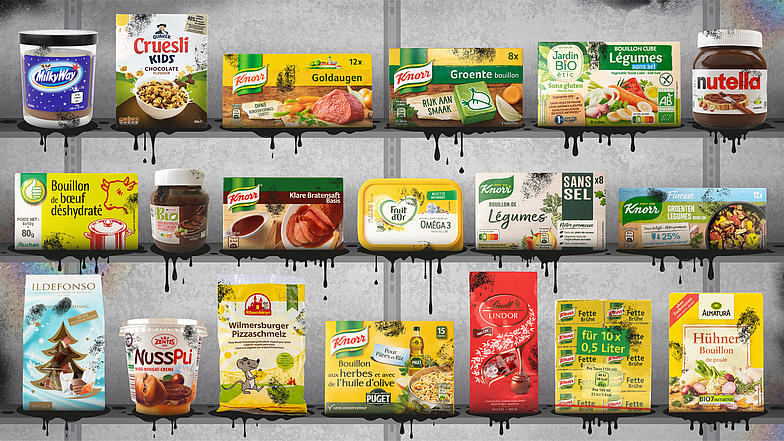In February 2025, following a freedom of information request, foodwatch obtained more than 30 internal EU documents detailing exchanges between the European Commission and eight Member States: France, Belgium, Germany, Luxembourg, the Netherlands, Spain, Italy, and Ireland. The documents show ongoing disagreements over how to eliminate mineral oil contamination from food – and reveal strong lobbying efforts from certain industry sectors, especially the olive oil industry.
A recent food safety alert from the Netherlands has revealed that Spanish olive oil exceeded the temporary contamination limit for mineral oils by a shocking 26 times. The incident highlights just how urgent it is to put a strong EU regulation in place to protect consumers.
Meanwhile, EU lawmakers are set to meet on 6–7 May to continue negotiations on the draft regulation. One thing is clear: there’s no time to lose, and public pressure remains crucial to ensure real consumer protection.
Overly complex proposal
Imagine a product with multiple ingredients like a chocolate chip cookie with nuts: All ingredients are supposed to comply with different limits for mineral oils and the regulatory authorities have to laboriously and complicatedly calculate a maximum limit for the final product on the basis of the limited information on the food label. This approach is impractical. According to the documents obtained, some Member States – for instance Germany, The Netherlands, Luxembourg – share some of foodwatch’s concerns: The European Commission’s proposal is too complicated, placing a heavy burden on control authorities, raising potential legal uncertainties, and complicating enforcement. For foodwatch, a simpler proposal based on the levels of fat content in a product seems a better way to go.
Calls for exemptions raise alarm
Conversely, Italy and Spain seem heavily influenced by the olive oil producers, asking for derogations through high maximum limits and long transition periods. The Italian authorities have forwarded entire industry positions to the Commission. foodwatch says: no exemptions! The contamination problem has been known by industry for years, they know what they need to do. In foodwatch’s last tests in 2021, 7 out of 8 products tested were free from detectable MOAH. That shows: It is possible for the food industry to put MOAH free products on the market.
Lack of Transparency and accountability
As is visible from the inputs received through our freedom of information request, the level of openness varies greatly between Member States: seven countries agreed to the disclosure of their exchanges with the Commission, but France fully refused access, leaving their position unknown.
From the documents received, it also appears that only eight countries even submitted written comments to the Commission on the Mineral Oils topics since early 2024. So where does that leave the position of the other nineteen? It is impossible to know. The only minutes of discussions between the Commission and Member States are usually available months after the meetings, without attributions of country positions and in very general terms.
What has happened so far?
Following years of campaigning by foodwatch, in early 2024, the European Commission finally put out a first draft proposal for a regulation on mineral oils in food. This was an important milestone in our long battle. Since then, the discussions between the European Commission and Member States on the evolution of this proposal have taken place behind closed doors, with very limited information filtering out towards the public, which makes it very difficult for a watchdog like ours to know if the process is moving in a good direction.
In December 2024, a leaked version of this proposal (dated from June) was obtained by foodwatch and released on our website. We highlighted concerns for consumer protection, because the proposed maximum limits for certain foodstuffs (e.g. vegetable oils) were too high and that the proposed transition periods for those products were too long. In general, the proposed approach combining fixed maximum limits for certain foodstuffs and the calculation of limits for final products was too complicated and deviated from the earlier approach recommended by Member States in 2022 (one harmonised approach applying to all foodstuffs based on the fat content of the products).
As months went by without clarity on the state of the proposal, foodwatch filed a freedom of information request about contacts between the Commission and Member States since early 2024, when the Commission put forward its first draft proposal.

Sign now for a strong law against mineral oil contamination!
EU lawmakers must not give in to industry pressure and agree on a highly protective approach. Join over 230,000 people already demanding a strong, simple EU law against mineral oil contamination in food. No loopholes. No delays. No more dirty hands.
